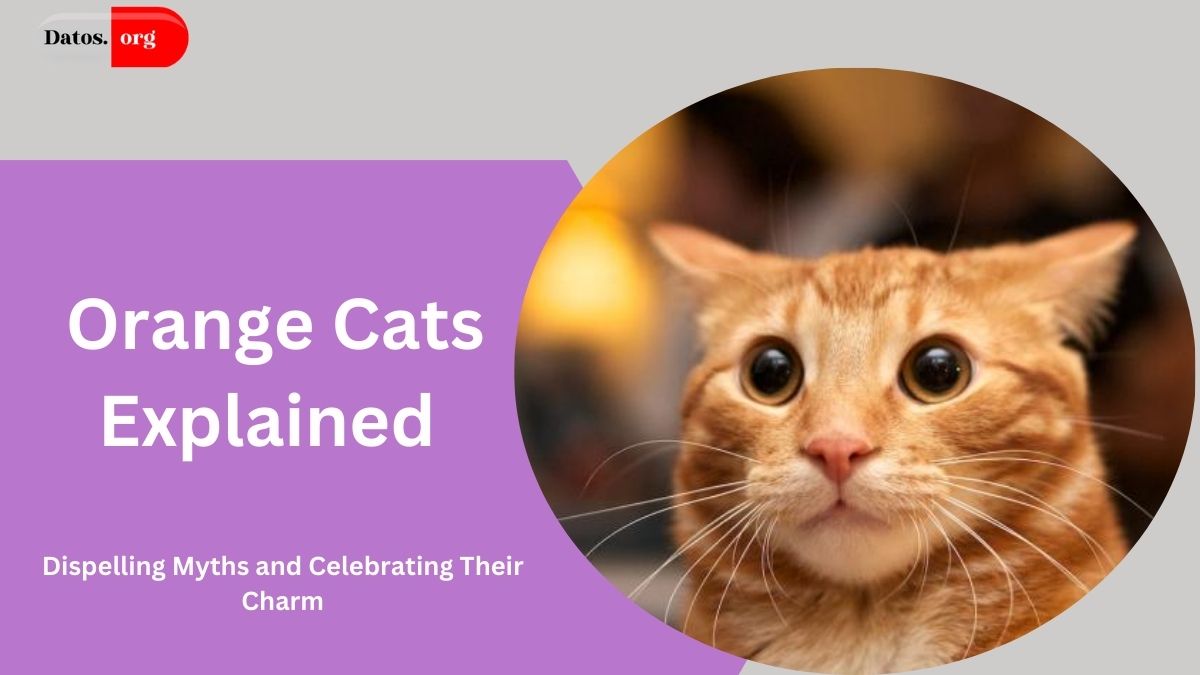You’ve probably heard the idea that orange cats are not very smart. But is this just a silly stereotype?
If you’re curious about these beloved felines and their true nature, let’s dive into the facts!

- The Orange Cat Misconception
- What Makes an Orange Cat?
- Key Traits of Orange Cats
- Intelligence Level
- Social Butterflies
- Affectionate Companions
- Unique Behavior
- Why Are They So Quirky?
- Did You Know?
- Pros and Cons of Owning an Orange Cat
- Advantages
- Disadvantages
- Conclusion
- People May Ask
- Are most orange cats male?
- Can orange cats belong to different breeds?
- What are common health issues for orange cats?
- Are orange cats more affectionate?
The Orange Cat Misconception
The notion that orange cats are “dumb” is mostly a myth.
While some might perceive them as less intelligent, the reality is that a cat’s smarts depend on various factors, such as breed and upbringing.
Orange cats can come from many breeds, meaning their intelligence can differ widely.
ALSO READ: Cat Sitting Positions Explained: Unlocking the Language of Your Feline Friend
What Makes an Orange Cat?
Orange cats aren’t a specific breed; rather, they are identified by their striking coat colour. This vibrant hue can be found in many breeds, including Maine Coons and Ragdolls.
The orange colour comes from dominant genes, making it familiar in various feline lineages.
Key Traits of Orange Cats
Intelligence Level
While some orange cats may seem less clever, many owners report that their pets display sharp minds.
The breed often plays a more significant role in determining intelligence than coat colour ever could.
ALSO READ: Brown Cat Breeds: A Look at Their Unique Qualities
Social Butterflies
Orange cats are typically friendly and outgoing.
Many owners notice that these cats love to interact with people and are often more vocal than other breeds.
This sociability may be attributed to the fact that many orange cats are male and tend to be more adventurous.
Affectionate Companions
Known for their cuddly nature, orange cats often seek out affection from their humans.
They enjoy snuggling and being around their owners, which makes them fantastic companions.
Unique Behavior
Though generally sweet, orange cats can show aggression if they feel threatened or unprotected. Male orange cats, especially if not neutered, may display dominance toward other male cats.
Why Are They So Quirky?
Many owners find their orange cats to be wonderfully weird. Their adventurous spirits can lead them into funny situations, making them delightful companions.
Did You Know?
- Coat Patterns: Orange cats always have tabby patterns—no solid orange cats here! They can have various designs, like stripes or spots.
- More Than a Color: Remember, “orange cat” isn’t a breed; it’s a colour description found in many breeds.
- The M Marking: Some say the M shape on their forehead is a blessing from the Virgin Mary, symbolizing a cat that once kept baby Jesus warm.
- Genetics Matter: The orange hue comes from a pigment called pheomelanin, which also colours red hair in humans.
- Gender Statistics: Approximately 80% of orange tabby cats are male, a curious fact that intrigues cat lovers.
- Nickname Alert: Orange cats are often affectionately referred to as “ginger” or “marmalade” cats.
- Personality Traits: Generally, these cats are friendly and loving, but each one has its unique personality.
- Food Lovers: Many orange cats have a reputation for being big eaters, much like the famous Garfield.
- Cuddle Buddies: Known for their low energy, they make perfect companions for cosy nights.
- Cultural Icons: Orange cats are often featured in social media discussions, highlighting their quirky behaviors.
Pros and Cons of Owning an Orange Cat
Advantages
- Laid-Back Attitude: If you’re seeking a chill pet, orange cats are often more relaxed and easygoing.
- Affectionate Nature: Their loving demeanor makes them great cuddle partners.
- Smart Cookies: They can be quite intelligent, learning new things quickly.
- Friendly Vibe: Their sociable nature means they thrive on human interaction.
Disadvantages
- Clinginess: Some orange cats may become overly attached, wanting to be by your side all the time.
- Weight Issues: Their love for food can lead to overeating, so portion control is essential.
- Bossy Behavior: Orange cats can sometimes exhibit dominance, making training important.
- Loud Meows: If you get a chatty orange cat, be prepared for a lively home!
Conclusion
The idea that orange cats are “dumb” is not true. These felines have diverse personalities and intelligence levels shaped by their breeds and individual traits.
Whether you’re considering bringing one into your home or already have a furry friend, knowing more about orange cats can help you appreciate their unique charm.
People May Ask
Are most orange cats male?
Yes, around 80% of orange tabby cats are male, creating a significant gender imbalance.
Can orange cats belong to different breeds?
Absolutely! Many breeds can feature the orange tabby colour, including Maine Coons and Ragdolls.
What are common health issues for orange cats?
Like all cats, orange cats can face health challenges, especially if they become overweight. Regular vet visits and a healthy diet are crucial.
Are orange cats more affectionate?
Many owners find that orange cats are friendly and loving, but individual personalities can vary significantly.
Click here to learn more.